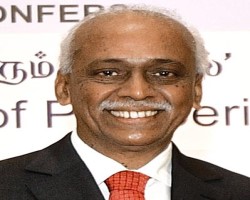SSC Current Affairs
| Polity and Governance |
|---|
|
|
|
Why in the news?
A day after former Supreme Court judge V. Ramasubramanian was appointed Chairperson of the National Human Rights Commission (NHRC), Leader of the Opposition in the Rajya Sabha Mallikarjun Kharge and his Lok Sabha counterpart, Rahul Gandhi, registered their dissent on the grounds that the process adopted was “fundamentally flawed” and a “pre-determined” exercise that ignored mutual consultation and consensus. About National Human Rights Commission (NHRC): The National Human Rights Commission (NHRC) is a statutory body established to protect and promote human rights in India. Key Details: Established: October 12, 1993, under the Protection of Human Rights Act (PHRA), 1993. Headquarters: New Delhi. Objective: Safeguard the rights guaranteed by the Constitution of India and international human rights conventions. Composition: Chairperson: Must be a retired Chief Justice of India. Members: One serving/former judge of the Supreme Court. One serving/former Chief Justice of a High Court. Two experts with knowledge or experience in human rights. Ex-Officio Members: Chairpersons of commissions like the National Commission for Women (NCW), SC, ST, Minorities, and Backward Classes. Selection Process of the NHRC Chairperson: The appointment of the NHRC Chairperson is governed by the Protection of Human Rights Act, 1993 (as amended). Eligibility: The Chairperson of the NHRC must be a former Chief Justice of India (CJI). Selection Process Constitution of a Selection Committee: The Chairperson is selected by a high-level committee consisting of: Prime Minister (Chairperson of the committee). Speaker of the Lok Sabha. Deputy Chairman of the Rajya Sabha. Union Minister for Home Affairs. Leader of the Opposition in the Lok Sabha. Leader of the Opposition in the Rajya Sabha. Recommendation: The committee deliberates and recommends a candidate for the position of Chairperson. Appointment: The recommended name is approved by the President of India, who formally appoints the Chairperson. Tenure and Removal: Tenure: The Chairperson serves for a term of 3 years or until the age of 70 years, whichever is earlier. Removal: The Chairperson can be removed by the President under specific conditions, such as proven misbehavior, incapacity, or other valid reasons as per the Protection of Human Rights Act. The selection process ensures transparency and consensus among key leaders in the government and opposition, maintaining the neutrality and credibility of the NHRC. Functions: Investigates complaints of human rights violations by public servants or negligence in preventing violations. Reviews existing laws, policies, and safeguards to ensure human rights protection. Promotes awareness and research on human rights. Recommends measures to the government for improving the protection of human rights. Intervenes in court proceedings involving human rights issues (with permission). Powers: Can summon individuals, examine witnesses, and demand documents. Can visit places like prisons and detention centers to inspect living conditions. Makes recommendations, but its decisions are not legally binding. Limitations: Can only recommend actions; lacks enforcement powers. Cannot investigate cases older than one year from the date of occurrence. Jurisdiction is limited to public authorities; private entities are excluded. Overlaps with other human rights bodies at the state level. Significance: The NHRC acts as a watchdog for the protection of fundamental rights, ensuring accountability of public authorities and spreading awareness about human rights issues in India. |
| >> More SSC Current Affairs |
